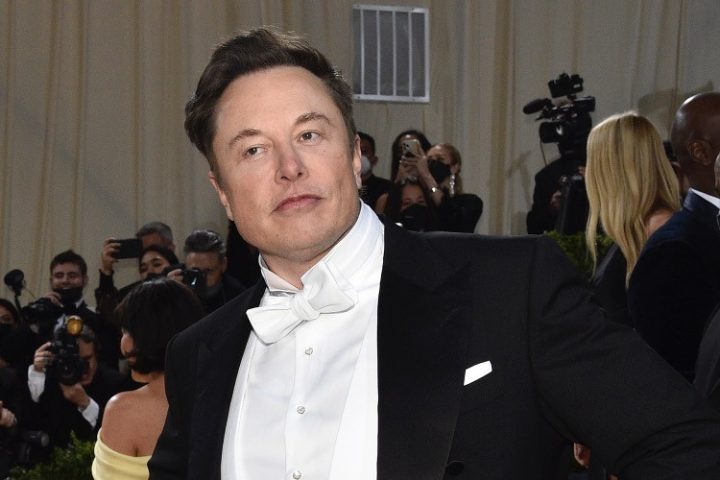
Within days of Elon Musk’s offer to buy up the 800 million-plus shares of outstanding Twitter (stock symbol TWTR) at $54 a share in April, the stock rose from about $39 to $51 a share. This made the deal doable — with Musk’s detailed plan of turning Twitter into a subscription-based business instead of an advertising-based one subject to pressures from advertisers and ridding the company of dead-weight employees, he could see the company growing immensely profitable.
That’s the pitch he made to his investors, who gladly ponied up millions to reduce the amount Musk personally had to invest in the deal.
But then he noticed he was getting pushback from Twitter: Twitter execs weren’t, he said in a filing with the Securities and Exchange Commission on Friday, upholding their part of the bargain, i.e., they weren’t giving him proof that less than five percent of Twitter users were advertising bots.
Musk, in other words, is following an old rule: It’s easier to stay out than to get out.
Twitter execs, on the other hand, said they were complying the best they could, subject to various privacy agreements and laws prohibiting full disclosure of sensitive company information that Musk might be able to use against them in the event the deal fell through.
So TWTR started falling in price. And Musk began getting nervous. As of today, TWTR is selling for $34 a share, down $20 a share from what Musk offered back in April. That means that Wall Street now values Twitter at about $27 billion, a far cry from the $46.5 billion he offered.
Built into the offer was the promise that if he terminated the agreement without cause, he would pay $1 billion. That’s a lot less — very much less — than the billions in value Twitter has declined since April.
Two high-powered merger and acquisition (M&A) law firms are hungry, each salivating over their third of that termination fee. And each is building the case for their client. Musk has grounds to terminate. Twitter claims it has given, and continues to give, Musk everything he asked for.
Though the world’s wealthiest man — even though his primary asset, Tesla (TSLA), has declined sharply in value as the market itself has declined — Musk remains protective of his capital. It would be a hard task to bring back to profitability a company that’s worth just $27 billion but for which he paid $46 billion, much less give himself and his investors a significant return.
Matt Levine was an editor of DealBreaker, an investment banker at Goldmans Sachs, and an M&A lawyer at one of those two law firms. He took 13 pages on Bloomberg to explore all the options, and the ins and outs of this proposed purchase, and noted that the real risk is on Twitter.
If Musk is correct — and this will be determined during the discovery part of the trial that both law firms are thirsting for — that Twitter has lied for years about just how many of its users are real people and how many are advertising bots, then Twitter could be fairly accused of defrauding its advertisers. Logic helps: 90 percent of Twitter’s revenue comes from those advertisers’ bots popping up on Twitter. Twitter has said that less than five percent of its users — estimated at more than 200 million — aren’t real people, but logic demands there must be more bots than Twitter claims.
Musk thinks that number is much higher — perhaps as high as one in every five. He just continues to ask Twitter for information that would prove that, and let him off the hook. Twitter can’t, for existential as well as legal reasons.
On the other hand, advertisers continue to use Twitter because those bots generate sales. As Levine noted, “Companies advertise on Twitter because it sells products! People use Twitter because other, non-bot people also use Twitter.”
So, it’s perfect for those law firms who are preparing for World War III in the case of Musk v. Twitter or Twitter v. Musk.
The firm representing Twitter has promised to file suit in a Delaware court later this week claiming Musk has breached the contract.
Levine says there are only two possibilities: The court rules for Twitter, and forces Musk to pay the $1 billion termination fee (plus associated legal fees and court costs) — which he’d be glad to do, to get out while the getting is good.
Or, the Delaware court forces Musk to buy Twitter at $54 a share.
Musk has an out: He has obtained financing commitments from a number of banks, who by now likely want to get out of the deal as badly as Musk does. If the deal cannot be consummated, the banks don’t have to provide the loans, and Musk doesn’t have to pay his share of the purchase price either. As Levine noted:
Musk agreed to buy Twitter with $33.5 billion of his own money and $13 billion of debt financing from his banks, and if the banks don’t put up their $13 billion then he doesn’t have to put up his $33.5 billion: in that case, he can pay the $1 billion to walk away….
Musk says the deal is off, so his banks walk away, so his financing isn’t available, so he doesn’t have to close the deal and can get away with just paying $1 billion.
Related article:
Elon Musk Offers to Buy Twitter for $41 Billion and Take It Private



